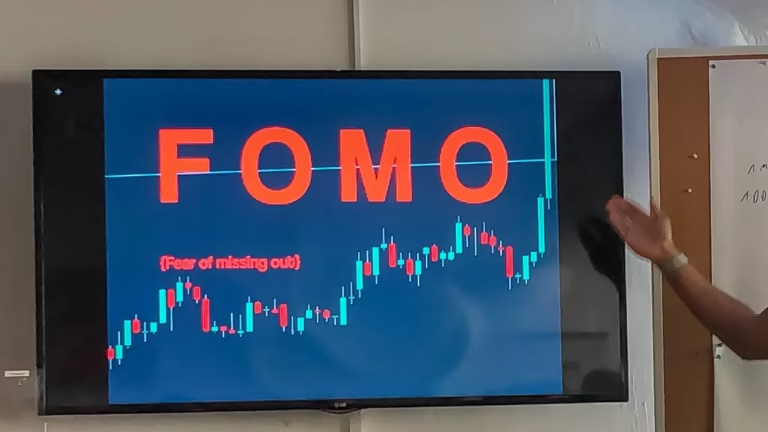Are you ready to invest for the long haul?
We live in a time where we are raised to look for things that indicate a win and provide a pretty quick result.
You take a test in school, you get the result a few days later, sometimes even the same day and you advance if you collect more of those passing grades in one year. Nobody asked if the information you provided as answers in the test became long-term knowledge you can use in the future.
How about getting a job. You got your degree and start applying for jobs you think could be suitable for you. Often you have a bunch of forms, then a reply for a phone interview and then an in-person interview after which — within days or a week, you will be told if you get the job. Was the stuff in the job description what you were actually asked to do in that job? Were you actually asked to apply what you learned when you studied for your degree or anything you were asked in your interviews? In most cases, the answer is “No”.
When we want to do something we need to prepare, meet the requirements, and then take action. Athletes prepare in training, get ready, and then attend the event where they are allowed to go and perform.
How about investing? Well, if you have created a company because you had a great idea and want this company to grow you often run into a situation where you need other people’s money. It used to be that money was only available from banks and so many great ideas never came to fruition because the eggheads in the banks did not want to hear about innovation.

Then a new thing came around called “Venture Capital”. People who had successfully realized their idea and made a lot of money wanted to help others still close to the starting line by funding them with money.
Now, this is an industry that is chasing after new ideas and hopes to 5x — 20x the investment. The people who provide the money know that only 1 in 20 and in some cases only 1 in 100 investments are going to be profitable, but those few winners — often also called ‘Homeruns” — are enough to make a nice profit for the VC investor or company.
It takes years to go to school, years to get a degree, even more years to rise in the ranks of a company when you have a job — often actually a working lifetime, and it takes companies decades to turn into household names.
Microsoft was laughed out the door by IBM executives when their founder (Bill Gates) said they wanted to developed personal computers and software for every household.
Funny enough these meetings were not only attended by Bill Gates, who wanted to develop a new operating system for this idea, but also by Steve Jobs, who wanted to build computers that combine beauty and functionality — “crazy”, the expert said. Look what happened in the 3 decades since.

What does that mean for you and me?
In my practice, I get to talk to many people from all over the world — which I love to do. Without exception, these folks like my help and advice about investing.
What I am recognizing is that they don’t want to invest in things — they want to invest in themselves. Putting money into an investment vehicle is like putting fuel into a car.
What they are really looking for is a better future for themselves, their families, and sometimes the future families of their kids.
Similar to the examples shown above the question I always explore at the start is this:
“How ready are you to invest”?
As soon as you go a little deeper on that question I like to ask you, as I ask all my clients, to think and quietly answer the following questions.:
- What exactly do you spend the first 10% of every dollar you earn on?
- What is the total amount of monthly spending that you cannot avoid (things like rent, gas, water, electricity, food, clothing, etc.)?
- What is the total amount of monthly spending you could reduce or eliminate?
- What is the total monthly amount (disposable income) you could save or invest?
- How much are your current investments contributing to your total monthly amount of available money?
- How long have you accumulated money from your disposable income and potentially the first 10% and which sum have you reached?
- Are you contributing to government-sponsored investment systems like 401K, IRA, etc. and how much is the monthly amount?
- As a sub-question to the one above: What are you using these sponsored programs for and what do you expect the outcome to be?
- Have you developed a vision for your future (7–15 years ahead from today) and can you describe it in detail?
- How much money would you need on a monthly basis to live the life you envision in that vision?
- Based on your current behavior, savings, the performance of your investments, etc., will you reach that amount (mentioned above) in the next 7–15 years, or is it later? If later, how much later?
When a new client of mine has answered these questions, I can determine how ready for investing in themselves he or she is.

The most important part of this exercise (which I encourage anybody reading their article to do) is the determination of:
Will I reach a constant stream of money on a monthly basis that is equal to or higher than the amount I need to live my vision?
Constant is what’s most important. Not one month or maybe two, but all the time.
If you find you are not ready to invest because you either don’t know the answer to the questions or the amount you can put into your accumulation account is very small, we need to work on that first.
In case you do have a nice number to accumulate regularly, maybe combined with some nest egg you already accumulated, you are ready to invest.
If that’s you, we can discuss what investment mix will allow you to create a steadily growing collection of assets that will always pay you as much or more than you need for your vision.
I call that the Time Freedom Point, where you get enough money in the door each month so you no longer need to work for it. Your money is working for you.
You are “The Boss”. You are the boss of your finances, your assets, and your money.
Guess what: When you are the boss, you decide what’s done and what’s not.
When you passed your Time Freedom Point that can be anything you desire aligned with your vision — any passion — even nothing at all.
I hope you are on the way to be the boss and if you are not sure, get in touch and let’s talk about it. I am happy to help you.
For an introduction on how to take that first step towards investing in yourself, Download your free mindset manual




